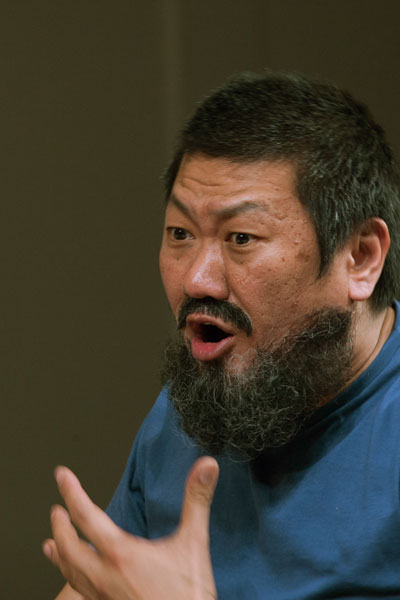They’re back. Howard Davies and his translator Andrew Upton had a well-deserved hit in 2007 with Gorky’s Philistines at the Lyttelton. Children of the Sun, which Gorky wrote in jail in 1905, is a prophetic allegory that foretells the destruction of Russia’s weak, idle and pretentious upper classes. We’re in a country mansion where a mad professor, stuck in his laboratory, conducts daft experiments while rhapsodising about the redeeming power of science. He stands for the tsar, I think. Around him clusters a gang of artists and drifters who settle into a quadrangle of doomed eroticism. This one loves this one but that one loves this one who loves someone else, and so on. Each is too self-involved to respond to a romantic overture. The result is an atmosphere of infertile onanism.
Howard Davies finds no variation in the mood and he’s happy to let the characters, all shallow monsters, run around the set for two hours bellowing. Some shriek so loud that they risk snapping their vocal chords. Andrew Upton’s translation feels as though he’s hotwired the text and wrapped it around a tree. He can’t find a consistent tone for Gorky’s garrulous duffers. Sometimes they vomit overexcited twaddle. ‘Thus it is, in the confusion of desire, icons are born!’ ‘Happiness is not possible unless you praise truth!’ At other times, they swap tower-block harassments. ‘Are you a moron?’ ‘Shut up about my fucking nerves.’
A sketchy plot adds some last-minute action. Professor Brainstorm manages to poison the local water supply and this triggers a yokels’ uprising. Armed bumpkins storm the mansion and go from room to room sticking knives in the residents’ throats. At which point, a shout of ‘up the revolution!’ sprang involuntarily to my lips. But I added a sincere ‘bravo’ for Bunny Christie’s adorable design, which is built from elegant painted timbers and plate glass. Four separate areas are laid out with cunning simplicity: a hallway, a science lab, a garden courtyard and a dining room. The detailing in the white columns indicates a high degree of artistry. Up top, where they meet the ceiling, the columns are stained with cobwebs and tobacco smoke. At shoulder level, where no one would touch them, they’re plain and immaculate. But at waist height, they’re smeared with the grease from trailing fingers. Exquisite and thoughtful work. But an irritating drama crammed with hoity-toity pests.
Hampstead is staging a show about the detention of Ai Weiwei, the celebrity vandal and conceptual artist. Howard Brenton’s play gets one thing right. Chinese jails are punishingly dull. Ai Weiwei’s notoriety makes him a token westerner and his treatment is pretty lenient by Asian standards. The guards call him names, stick a hood on his head and cuff him to his chair. But they don’t assault him. The world-famous hostage himself comes across as a charmless, wooden and self-satisfied lightweight, and not as the eloquent and exalted visionary I was half-expecting.
No surprise really. Artists, by inclination and training, are dim-witted copycats. If they were creative pioneers they wouldn’t expend their energies on the petrified stereotypes of their profession. Asked by the guards to explain his work, Ai Weiwei (Benedict Wong) replies that its value lies in the response of its devotees. A revealing admission. Conceptual art is a stained mirror that reflects back the glib prejudices of the mutts who gawp at it. I thought so.
Oddly enough, China emerges well from this play as a society that is moving slowly towards enlightenment and progress. Art, on the other hand, still languishes in the torpor that settled over it a century ago when celluloid destroyed its primacy in the realm of pictorial narrative. Other than that, the play has nothing to offer but a triple-thick slice of self-congratulation. The moral is that we Atlanticists are sophisticated, open-minded liberals while our chums over in the Pacific are irredeemable savages. The play doesn’t quite tag them as ‘the slant-eyed yellow peril’ but the sentiment is there.
Hampstead streamed this production over the internet. A bold move, superbly executed. Smart camerawork and unobtrusive editing by the director convinced me that the web is a perfect medium for live theatre. I watched alongside my six-year-old son who had no trouble grasping the idea of an artist in custody. ‘Perhaps he wrote something on the walls and he wasn’t allowed.’ After 20 minutes, he said, ‘It’s very long. They’re just sitting in a room talking. Is anything going to happen exciting?’ Fair point. Eventually his patience was rewarded when Ai Weiwei unleashed a torrent of ‘fucks’ at the guards. He turned to me and said, ‘He’s definitely going to jail.’







Comments